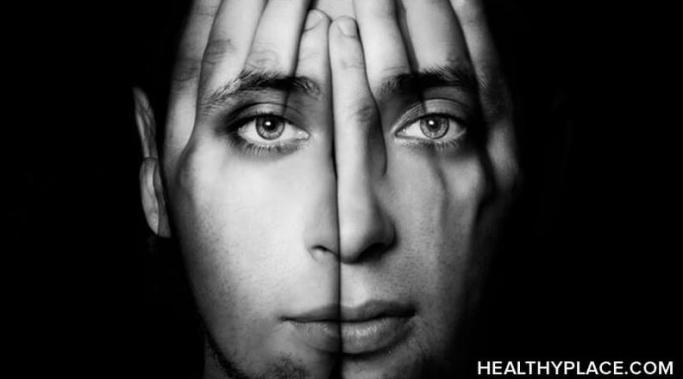Blogs
If you’ve been poking around for mental health information for a while you’ve probably seen them: The people who decry psychiatry and all associated therapies. These people come in various shapes and forms but they often call themselves “psychiatric survivors” or “antipsychiatrists.” These are people who claim that psychiatry is evil and psychiatrists are nothing but abusers. These are people that claim that psychiatric medication will cook your brain and that those who use psychiatric services have simply been duped into believing the lies of “big pharma.”
It should surprise no one that I’m not a fan of these people. In my opinion, these people prevent sick people from getting the help they so badly need and they can cost someone their life.
And writing off psychiatry as a field of medicine reminds of refusing to eat Chinese food.
Many theories abound as to why mental health stigma plays such a major role in society. But one undeniable truth is that the media have likely done more harm than good.
A Canadian news story caught the attention of the world in 2009 when Vince Li, a Chinese immigrant to Canada with schizophrenia, suffered a psychotic break and brutally murdered and decapitated Greyhound bus passenger, Tim McLean.
There is a common belief in many cultures that human beings have been given free will in determining their lives. On one hand, being able to make our own decisions and choose our own fate is what has allowed our world to become what it is, for better or for worse. On the other hand, free will is like the proverbial double-edged sword. Sometimes, too much freedom may not be such a good thing.
According to Sarah-Jayne Bass, there are a number of barriers to employment faced by people with ADHD including communication barriers and impaired social interactions. While there are numerous individuals with ADHD who have found ways to be successful on the job, there are also many individuals with ADHD who are unemployed, underemployed, or who are what I call "unhappily serially-employed." I place myself in the latter category.
Here we will address the ranks of the unhappily employed, underemployed, and "serially-employed" ADHD worker and provide a few ideas regarding "success" in the workplace.
Employer of the Year! There is no plaque, no luncheon, just my undying gratitude for not letting my son's diagnosis of schizophrenia get in the way of keeping him on as a valued employee.
For that, Ben's employer - and any employer with the foresight to see and treat mental illness the same way you'd look at any other illness - gets my personal award for "Employer of the Year."
Thank you.
Knowing when to tell someone you have a mental illness is ... complicated. It's a serious topic and the answer is hard to figure out. And you have to figure it out for each individual person and situation (What to Tell a Date About Your Mental Illness). I've had to do it plenty of times, and here's my advice for when to tell someone you live with a mental illness.
Erin Lynn Hawkes is a neuroscientist and author of the book, When Quietness Came: A Neuroscientist's Personal Journey With Schizophrenia. Before being diagnosed with schizophrenia in her early 20's, Erin considered herself an average person. After all, everyone has a little voice in their head, right? She did not know that her paranoia and delusions were outside of the normal experience.
Way too many abuse victims continue suffering because they do not put together a viable safety plan. Safety planning can be a very taxing, emotional issue for victims because, in essence, they are confronting the fact that even if they love the abuser, they are in danger emotionally and physically. No one wants to believe that, but safety planning forces you to see the danger.
When you’re living with ADHD (in yourself or a loved one), every day can feel like a struggle. And when you find something that works to make everyday life run just a little bit smoother, that one tip can be a lifesaver! And if that tip was shared with you by someone else, you feel eternally grateful for their time and generosity. Over the next two blog posts, I’m going to talk about 3 ways you can pay it forward, and bring a little bit of happiness to the lives of others with ADHD.
Mental illness symptoms are as cold and generic as inhumanly possible. “Depressed mood.” “Loss of energy or fatigue.” “Psychomotor retardation or agitation.”
Ah, yes, those things. They sound like a bummer.
Although, actually, they don’t. They sound like characteristics of a lab animal.
And one of the pesky symptoms of depression is “easy to tear.” You know, you cry a lot.
But everyone cries, so how bad could that possibly be?










I believe she will only be able to rid herself of her demons, and hopefully her BPD as well, when she's ready to confront the abuse of her father. If she can put the blame where it belongs, she may stop projecting that victim/perpetrator cycle on the present men in her life. These demons are a metaphor for the purgatory she has created for herself. That reality has consequences in the real world, but it need not be real in the tangible sense. Exorcising her demons will require the expenditure of real physical energy and probably the destruction of aspects of her personality. If this ever happens, and it's possible but not probable, then these demons will evaporate. They are only as real as one's personality is real. In short, reality is not the question, it's what you make of the things you feel to be real.